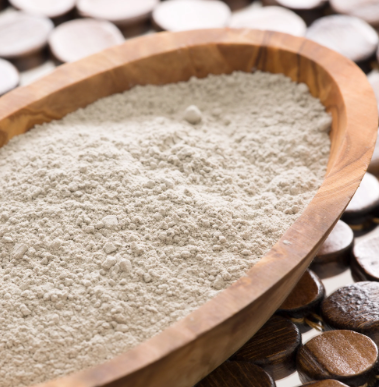- Understanding the Role of Geomembrane Liners in Waste Management
- Innovations in Geomembrane Liners for Water Management
- Geomembrane Liners: A Comprehensive Guide
- The Future of Geomembrane Liners in Civil Engineering
- Geomembrane Liners: Enhancing Landfill Stability
Manager:Alvin Wang
WhatsApp:+62 8983806051
Tel:+86 10-5797-1075
Email:steelwang@okorder.com
Address:3rd Floor, No.2 Building, No.1 Sanlihe Road
Is bentonite flammable?
A clay mineral that is versatile in nature, used for different purposes, it is known to have unique properties. It is beneficial when it comes to construction and environmental remediation because of its water absorption and expansion property. However, the issue of flammability especially as far as bentonite blanket products are concerned raises several questions. In this article, we will take a deep look at the attributes of bentonite, its potential inflammability and what that implies for bentonite blankets.

Understanding Bentonite
In order to know if this material can catch fire easily, one should first understand some specific characteristics of bentonite. This naturally occurring clay contains large quantities of montmorillonite which is a type of smectic mineral. The ability of swelling greater than any other substance upon hydration distinguishes the clay from other clays hence sealing waste pits among other civil engineering applications.
The Bentonite Blanket
Another area where it has found use is in making bentonite blankets. These blankets also referred to as geosynthetic clay liners (GCLs) or bentonitic mats serve as an impermeable barrier in environmental containment systems. A typical version is made by sandwiching layers of the clay between Geotextiles to improve on its impermeability.
Flammability Concerns
These considerations come out due to frequent use of these products in Environmental Engineering Projects such as containment berms. Is bentonite flammable? It becomes important because there would be severe consequences if a fire were ever sparked.Why Becomes Relevant Due To Its Flammability?
Assessing Flammability
To establish whether or not this material can burn, let us consider its chemical composition and behavior under various circumstances (Ennis et al., 1999). Primarily bentonite comprises hydrated aluminosilicates – minerals that are classified as clay minerals (Sear, 1995). The presence of water molecules contributes to the low flammability tendencies observed in these compounds. On heating, dehydration occurs as bound water is expelled from the structure of bentonite. This process can lead to limited burning of this material due to the fact that it serves as a natural fire retardant.
Flame Retardant Properties
Although Bentonite may not be highly flammable by itself, its suitability as a flame retarding agent depends on different factors such as moisture content and particle size. Moisture adsorption and retention capability enhances its flame resistance properties when bentonite is densely packed or hydrated for example in the case of bentonite blankets. A hydrated clay layer functions as an obstacle against spreading heat and fire thus giving extra security in areas where fires frequently break out.
Laboratory Testing
For more accurate determination of flammability properties of bentonite and bentonite blankets, laboratory testing can be useful for providing relevant information (Ennis et al., 1999). Such tests are designed to measure factors like flame spread rate and smoke development under controlled conditions using specific standards such as American Society for Testing Materials (ASTM) E84-18 “Standard Test Method for Surface Burning characteristics of Building Materials”. These tests play an important role in determining if products made from Bentonite are able to withstand fire situations according to the set safety standards.
Real World Applications
It should be noted that real-world performance of such blankets during a fire emergency differs based on several factors including mode of installation, environmental aspects and availability of chemicals that enhance combustion. Although it offers some level of resistance against catching fire, complete containment efficiency will depend on other requirements such as layers beneath clay lining sheets that protect them.
Risk Aversion
Because of the dangers associated with fire in projects that utilize bentonite blankets, many steps can be taken to mitigate them. Additional fire barriers or protective layers may be introduced while proper installation techniques should be adopted in order to reduce potential ignition sources. Maintenance inspections as well as regular monitoring are also vital in maintaining containment systems efficiently over a long period.

Conclusion
In conclusion, bentonite by itself has low flammability due to its chemical composition and moisture retention capabilities but the efficacy of bentonite blankets in fire events depends on various factors. Understanding the flammability properties of bentonite and applying appropriate safety measures is important for assuring trustworthiness and functionality of environmental containment systems. Like any other construction material, proper design, installation and maintenance are crucial for mitigating risks and enhancing safety in engineering projects using bentonite blankets.”
-
2024-05-15How long does bentonite waterproofing last?
-
2024-05-15What is bentonite used for?
-
2024-05-15What happens when bentonite gets wet?
-
2024-05-15Does bentonite go bad?






